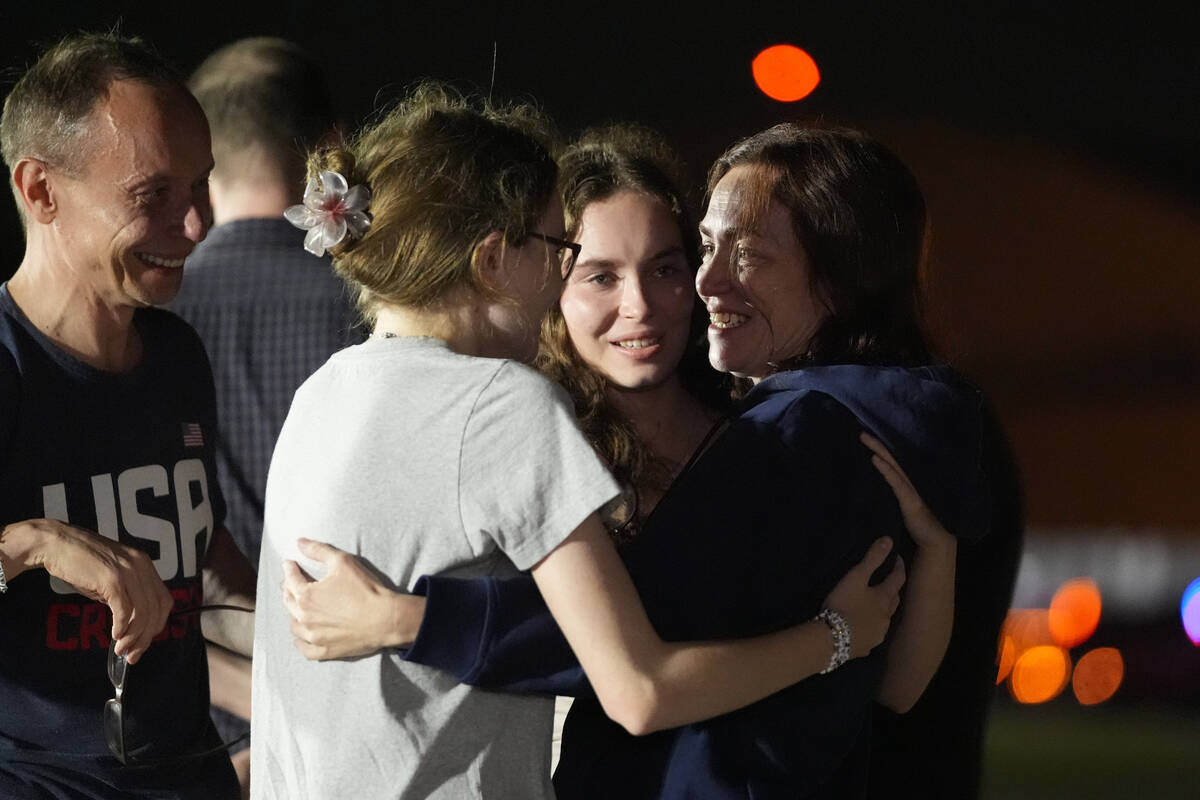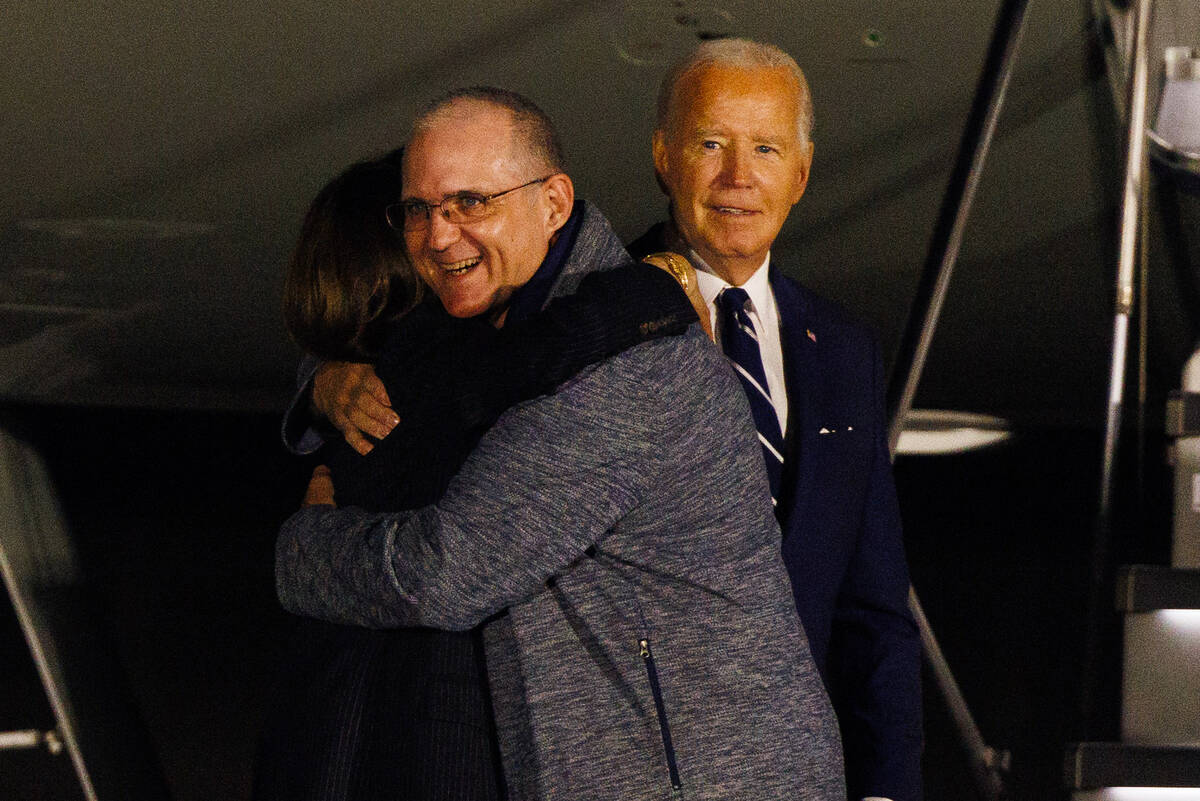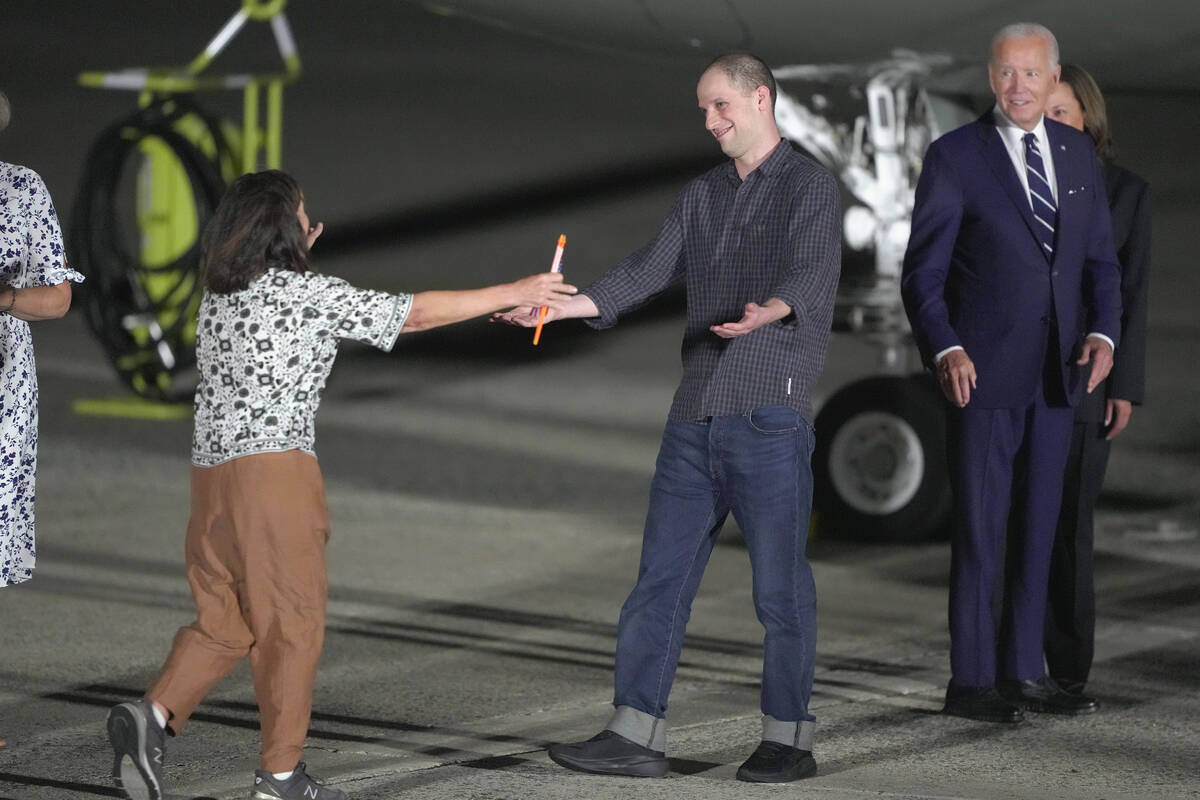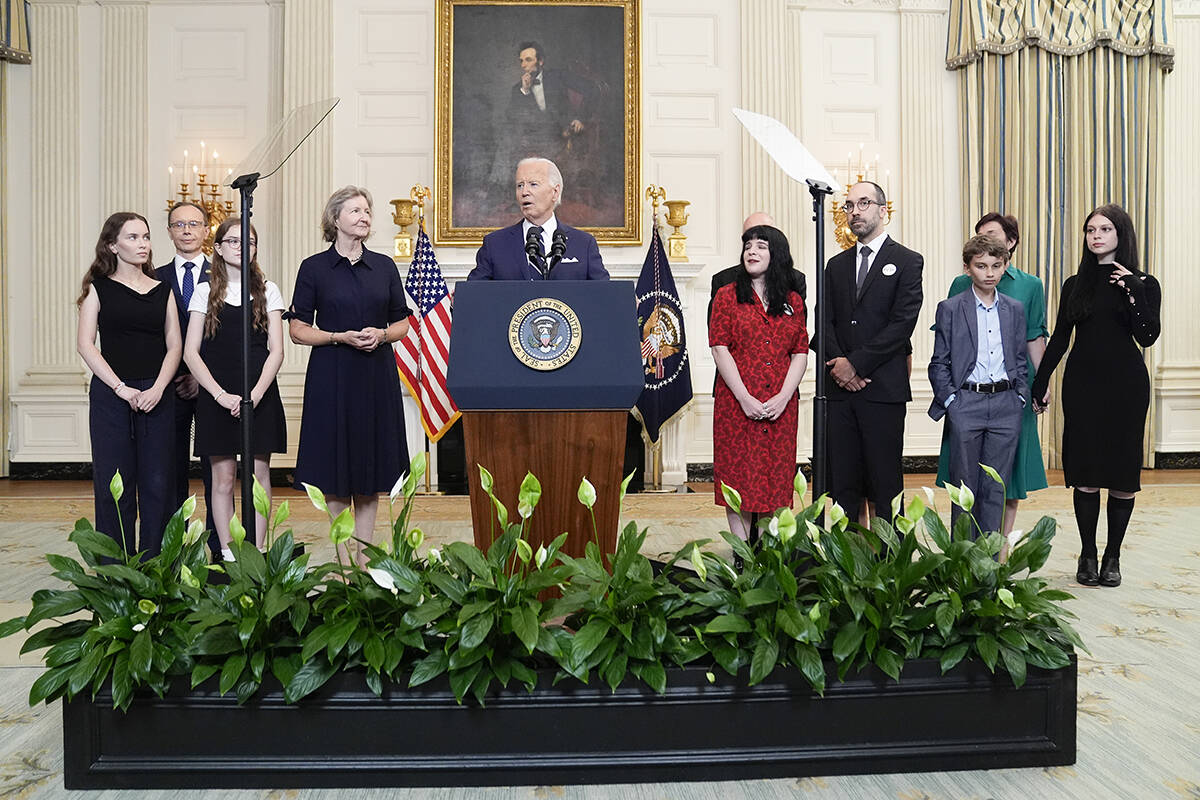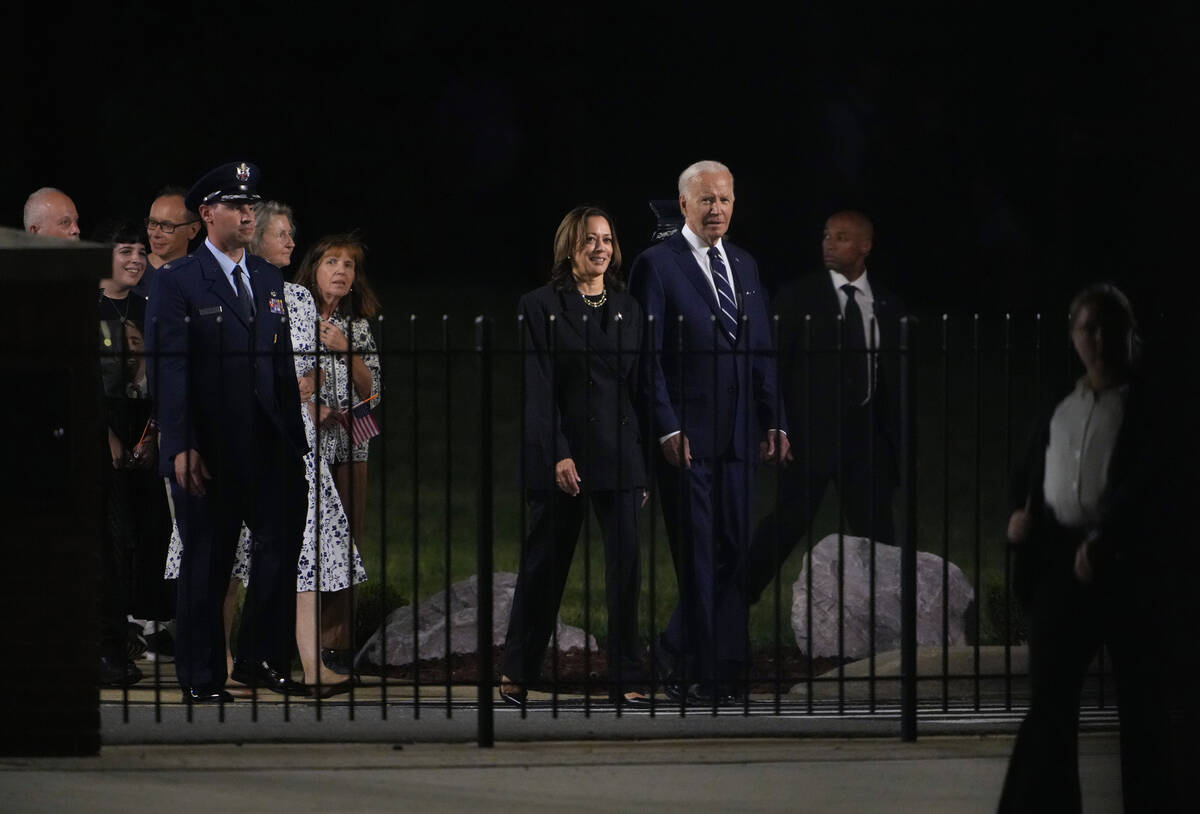SAUNDERS: A bittersweet deal that freed innocents — and an assassin
WASHINGTON
National Security Adviser Jake Sullivan fought to hold back tears Thursday as he talked about watching President Joe Biden on the phone informing the families of American hostages held in Russia that their loved ones would be free after a prisoner swap. It was a joyous occasion, topped only by the return of the hostages.
It was, Sullivan offered, “a feat of diplomacy that honestly could only be achieved by a leader like Joe Biden.”
Forgive Sullivan for injecting campaign politics into the moment. He was heralding a deal that freed 16 political prisoners from seven countries in exchange for the release of eight Russians who had been detained in the United States, Germany, Norway, Poland and Slovenia.
Sullivan wasn’t the only person who was joyous. Russian President Vladimir Putin seemed especially pleased to welcome home assassin Vadim Krasikov, who was serving time in Germany for the 2019 Berlin killing of a former Chechen fighter.
Krasikov’s release was a painful concession that Biden nonetheless made because Putin had made it clear there would be no deal with Russia without the hit man’s release.
Among the 16 released hostages were American journalists Evan Gershkovich and Alsu Kurmasheva, green-card holder and Pulitzer Prize-winning columnist Vladimir Kara-Murza, and former U.S. Marine Paul Whelan.
“All four have been imprisoned unjustly in Russia,” Biden announced.
“Russian authorities arrested them, convicted them in show trials, and sentenced them to long prison terms with absolutely no legitimate reason whatsoever,” he added.
When a reporter asked Biden about former President Donald Trump’s claim that he could have negotiated a prisoner swap that produced better terms, Biden countered, “Why didn’t he do it when he was president?”
The answer, of course, is that Russia did not detain Kara-Murza until 2022 or Gershkovich and Kurmasheva until 2023. Only Whelan, who was arrested in 2018, was behind Russian bars when Biden took the oath of office on Jan. 20, 2021.
Team Biden wants you to believe that Biden was able to cut this deal because, unlike Trump, the president enjoys warm, personal relationships with other world leaders. Or, as Biden put it, “All politics is personal.”
Biden, we know, had to press a reluctant Germany to release assassin Krasikov. According to news reports, German Chancellor Olaf Scholz told Biden in February, “For you, I will do this.”
The president’s remark about politics being personal was a not subtle dig at Trump’s history of elbowing allies and needling fellow NATO leaders when a little glad-handing might deliver more good will.
Trump hit back Friday when he told Fox Business Network’s Maria Bartiromo the exchange was “a win for Putin,” but he wouldn’t challenge the decision because of the result.
On Truth Social, Trump argued that Biden set a “bad precedent for the future” that could encourage more hostage taking.
I share Trump’s concern about the bad precedent every hostage deal presents, as I did when Trump negotiated similar swaps to free American hostages in 2019 and 2020.
In a podcast recorded before the release of Whelan, Gershkovich, Kurmasheva and Kara-Murza, the Foundation for Defense of Democracy President Clifford May warned against what is known as “hostage diplomacy.”
“It seems to me we’re normalizing and legitimizing hostage taking,” May observed.
The title of the podcast: “Putin’s pawns.”
Contact Review-Journal Washington columnist Debra J. Saunders at dsaunders@reviewjournal.com. Follow @debrajsaunders on X.



